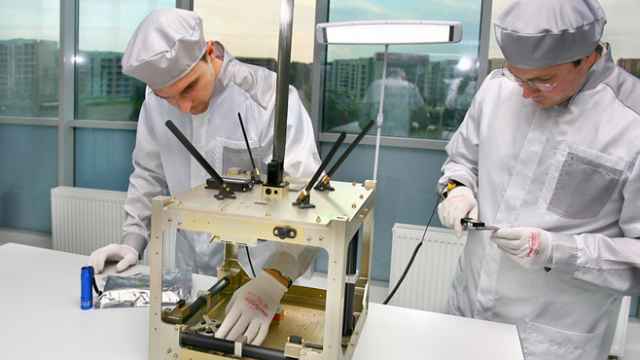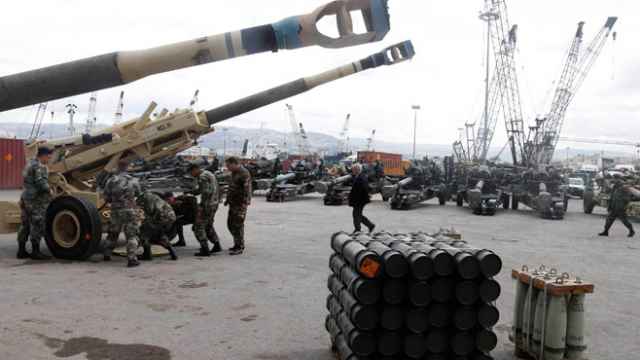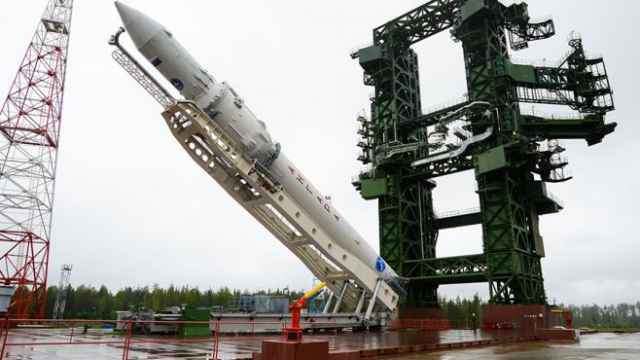Russia's ability to detect intercontinental ballistic missile (ICBM) launches will be impaired until at least July, when the first satellite of its new early warning system can be launched, the Kommersant newspaper reported on Wednesday citing Defense Ministry and space industry sources.
The new “Tundra” satellites were supposed to begin launching in 2013 to replace a defunct Soviet-era system. But technical delays have left Russia without any fresh eyes in the sky — leaving Moscow nearly blind to a possible nuclear first strike at a time when international tensions are peaking due to the crisis in Ukraine.
Kommersant said the decision to further postpone the launch was made by the Aerospace Defense Forces, the arm of the military that will operate the satellites, and the system's builder, Kometa space systems.
Russia's ability to detect ICBM launches has withered significantly over the past year. Moscow had three OKO-1 satellites remaining from the Soviet Union. One of these malfunctioned last year, and the other two only provided coverage for a few hours a day before they were taken offline in January when they reached the end of their operational lifetime, according to Kommersant.
But an unidentified Defense Ministry source quoted by Kommersant said Russia is not entirely blind to missile launches in the interim period between the old and new systems, since ground-based radar also plays a role in detecting incoming nuclear missiles.
Satellites simply increase the speed of detection, the source said: “The space-based units [of the early warning system] allow you to pinpoint the launch of an enemy missiles about a minute earlier than the radar stations.”
A Message from The Moscow Times:
Dear readers,
We are facing unprecedented challenges. Russia's Prosecutor General's Office has designated The Moscow Times as an "undesirable" organization, criminalizing our work and putting our staff at risk of prosecution. This follows our earlier unjust labeling as a "foreign agent."
These actions are direct attempts to silence independent journalism in Russia. The authorities claim our work "discredits the decisions of the Russian leadership." We see things differently: we strive to provide accurate, unbiased reporting on Russia.
We, the journalists of The Moscow Times, refuse to be silenced. But to continue our work, we need your help.
Your support, no matter how small, makes a world of difference. If you can, please support us monthly starting from just $2. It's quick to set up, and every contribution makes a significant impact.
By supporting The Moscow Times, you're defending open, independent journalism in the face of repression. Thank you for standing with us.
Remind me later.






